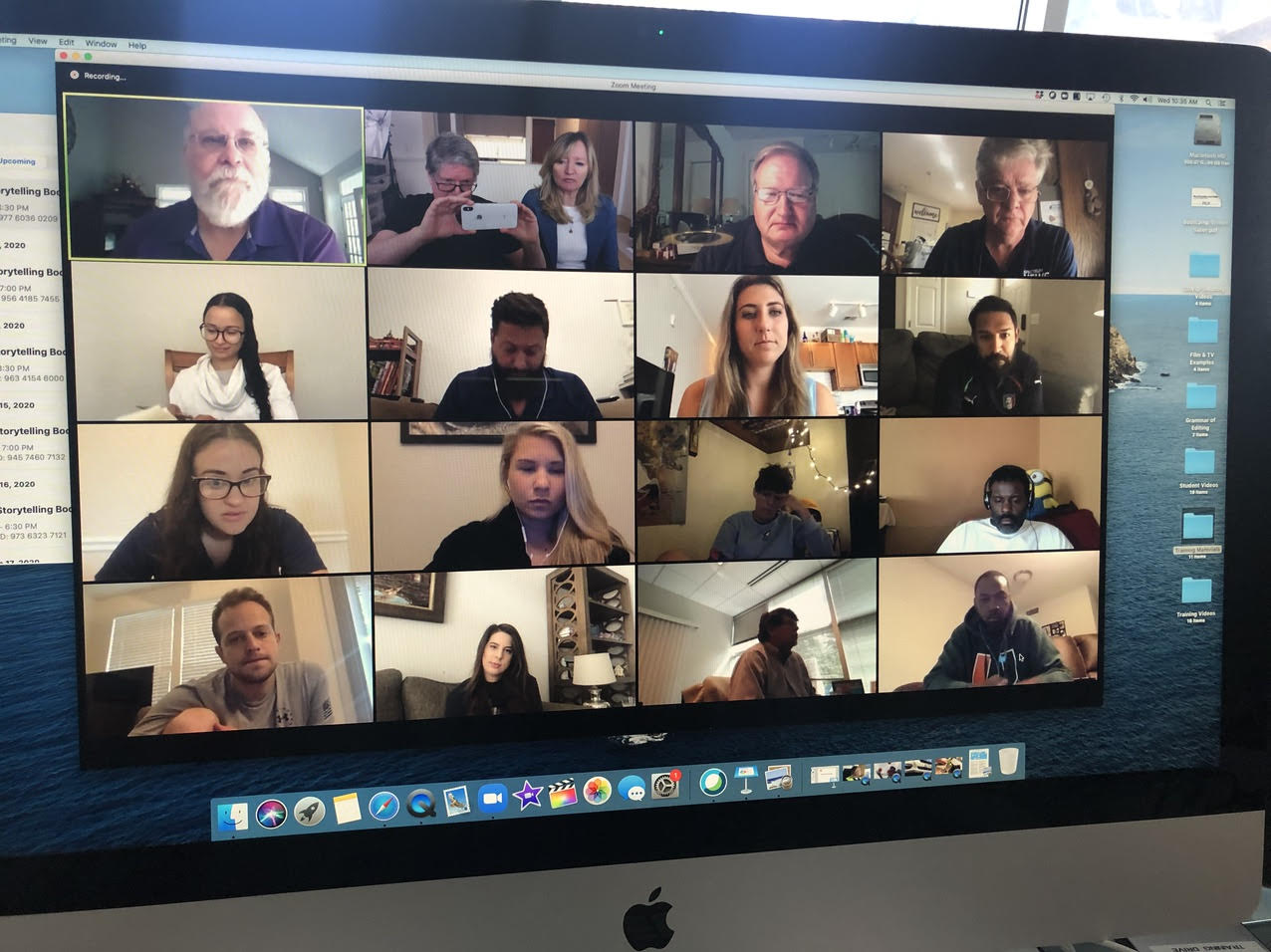
For more than thirty years, we have been running in-person bootcamps as a major part of our business.
Whether it was The Travel Channel Academy or The Guardian Media Academy or bootcamps that were dovetailed to the restructuring of a network news operation like The BBC, we flew all over the world to run our Bootcamps
They were very popular and very successful.
We ran bootcamps in Japan, in South Africa, in Germany, in the US, in Morocco, in Thailand. All over the world,
We schlepped equipment, we lived in hotels, we had every Gold Star status in every hotel in the world. We had 2.5 million frequent flier miles - but who wanted to go anywhere?
When Covid struck, we had a full plate of bootcamps in the US and in Europe.
They all came to a grinding halt.
We decided to migrate to Zoom.
We had done a few WebEx sessions with the UN when we didn't want to go to Somalia.
But now we were going all out in Zoom.
It worked amazingly well.
Zoom, in fact, proved better than the real-life - in-person bootcamps.
The experience was, remarkably, more intimate.
We got to know the participants better.
As Lisa noted - everyone is in the front row.
We used to do Bootcamps with 40 people in the room
The Zoom sessions are closer to 10-12.
And, we are there all day long.
We converted the office next door to a Zoom studio

We come on at 8:30 in the morning and are often on until 8 at night.
Even when our students are in the field shooting, we can be 'with them'.
We can share video as they are working and comment and critique.
We can do it on an individual basis or in groups.
It is remarkably powerful. Better in many ways than the real in-person experience.
After five weeks of Zooming 5 days a week, we are never going back to in person.
Zoom works better.
And the results are better as well.
It's a whole new world.
Perhaps the only benefit of the virus.
At least there was one.


